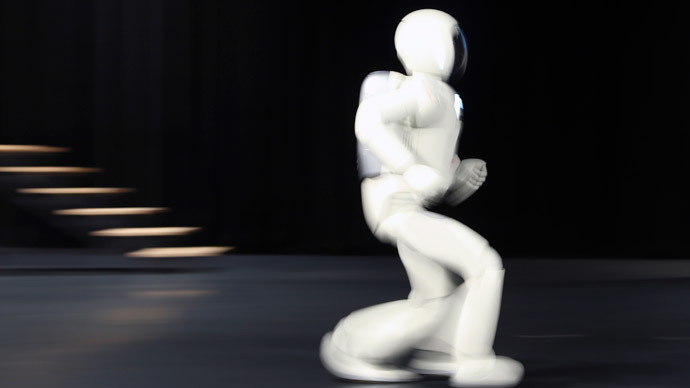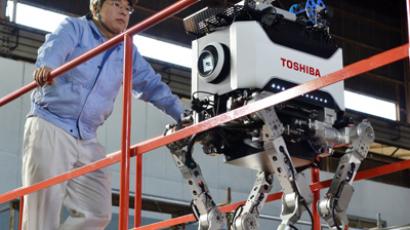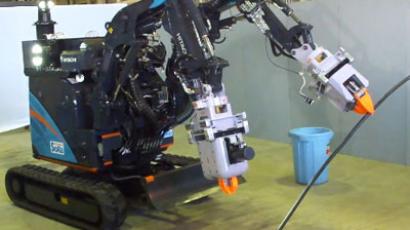Japanese leader proposes first-ever 'Robot Olympics'

Nations of the world will be sending their most talented athletes to Tokyo in 2020 for the Olympic Games – but if Japanese Prime Minister Shinzo Abe gets his way, they might also be pitting robots against each other.
Abe announced his vision while touring robotics factories in Tokyo and Saitama, which is located just north of the country’s capital. According to Japan’s Jiji Press (translated via Agence France-Presse), the prime minister said a Robot Olympics would be a great way to showcase advances in the field around the globe.
“In 2020, I would like to gather all of the world's robots and aim to hold an Olympics where they compete in technical skills,” he said.
For Abe – who is trying to jumpstart Japan’s economy with various proposals – the robotics industry represents another potential venue through which the country could benefit. In addition to hosting an international robotics competition, Abe said he intends to create a task force that would outline ways in which Japan could triple the size of its robotics industry to 2.4 trillion yen (US$24 billion).
“We want to make robots a major pillar of our economic growth strategy,” he stated. "We would like to set up a council on making a robotic revolution a reality in order to aid Japan's growth.”
Exactly how robots would compete during an Olympic-style event remains to be seen, since Abe didn't go into much detail about his proposal. But as The Verge noted, it’s possible the competition could be similar to DARPA’s Robotics Challenge, which tasks robots with completing a series of eight jobs – like climbing a ladder or opening a valve – which would be helpful in the aftermath of a natural disaster.
The competition could also go in a completely different direction, but what’s becoming clear – and what Abe is betting on – is that machines will continue to become even more integrated into our daily lives. Back in March, a group of Swiss robotics laboratories announced that the country will host an international competition in 2016, known as the 'Cybathalon,' for athletes who make use of prosthetics and other mechanical aids.
What’s also clear is that, with or without Abe’s robonomics task force, Japanese companies continue to press forward in the field. As RT reported earlier this month, engineers revealed plans to construct a moving, 60-foot robot from the popular 'Mobile Suit Gundam' anime series by 2019, just in time for the show’s 40th anniversary.
As for machines with more pragmatic uses, both Hitachi and Toshiba have unveiled robots capable of helping engineers work in radioactive environments like the Fukushima nuclear plant. Meanwhile, Japanese engineers at Wakata are also conducting tests with a small robot named 'Kirobo,' who is operating on the International Space Station as scientists experiment with developing an effective companion for lonely people.
"When people develop a relationship, it is an accumulation of small bits of communication. Small things make it work or not work," Kirobo developer Tomotaka Takahashi said back in December. "We've learnt important tips to develop a robot that can communicate with people more."














